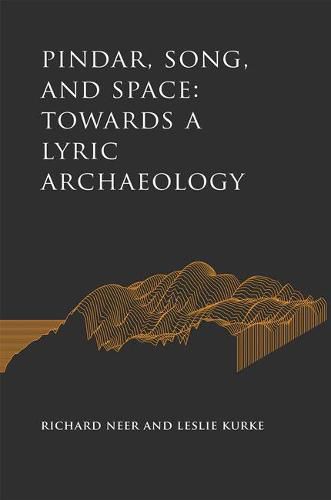Readings Newsletter
Become a Readings Member to make your shopping experience even easier.
Sign in or sign up for free!
You’re not far away from qualifying for FREE standard shipping within Australia
You’ve qualified for FREE standard shipping within Australia
The cart is loading…






A groundbreaking study of the interaction of poetry, performance, and the built environment in ancient Greece.
Winner of the PROSE Award for Best Book in Classics by the Association of American Publishers
In this volume, Richard Neer and Leslie Kurke develop a new, integrated approach to classical Greece: a lyric archaeology that combines literary and art-historical analysis with archaeological and epigraphic materials. At the heart of the book is the great poet Pindar of Thebes, best known for his magnificent odes in honor of victors at the Olympic Games and other competitions. Unlike the quintessentially personal genre of modern lyric, these poems were destined for public performance by choruses of dancing men. Neer and Kurke go further to show that they were also site-specific: as the dancers moved through the space of a city or a sanctuary, their song would refer to local monuments and landmarks. Part of Pindar’s brief, they argue, was to weave words and bodies into elaborate tapestries of myth and geography and, in so doing, to re-imagine the very fabric of the city-state. Pindar’s poems, in short, were tools for making sense of space.
Recent scholarship has tended to isolate poetry, art, and archaeology. But Neer and Kurke show that these distinctions are artificial. Poems, statues, bronzes, tombs, boundary stones, roadways, beacons, and buildings worked together as a suite of technologies for organizing landscapes, cityscapes, and territories. Studying these technologies in tandem reveals the procedures and criteria by which the Greeks understood relations of nearness and distance, here and there -and how these ways of inhabiting space were essentially political.
Rooted in close readings of individual poems, buildings, and works of art, Pindar, Song, and Space ranges from Athens to Libya, Sicily to Rhodes, to provide a revelatory new understanding of the world the Greeks built-and a new model for studying the ancient world.
$9.00 standard shipping within Australia
FREE standard shipping within Australia for orders over $100.00
Express & International shipping calculated at checkout
A groundbreaking study of the interaction of poetry, performance, and the built environment in ancient Greece.
Winner of the PROSE Award for Best Book in Classics by the Association of American Publishers
In this volume, Richard Neer and Leslie Kurke develop a new, integrated approach to classical Greece: a lyric archaeology that combines literary and art-historical analysis with archaeological and epigraphic materials. At the heart of the book is the great poet Pindar of Thebes, best known for his magnificent odes in honor of victors at the Olympic Games and other competitions. Unlike the quintessentially personal genre of modern lyric, these poems were destined for public performance by choruses of dancing men. Neer and Kurke go further to show that they were also site-specific: as the dancers moved through the space of a city or a sanctuary, their song would refer to local monuments and landmarks. Part of Pindar’s brief, they argue, was to weave words and bodies into elaborate tapestries of myth and geography and, in so doing, to re-imagine the very fabric of the city-state. Pindar’s poems, in short, were tools for making sense of space.
Recent scholarship has tended to isolate poetry, art, and archaeology. But Neer and Kurke show that these distinctions are artificial. Poems, statues, bronzes, tombs, boundary stones, roadways, beacons, and buildings worked together as a suite of technologies for organizing landscapes, cityscapes, and territories. Studying these technologies in tandem reveals the procedures and criteria by which the Greeks understood relations of nearness and distance, here and there -and how these ways of inhabiting space were essentially political.
Rooted in close readings of individual poems, buildings, and works of art, Pindar, Song, and Space ranges from Athens to Libya, Sicily to Rhodes, to provide a revelatory new understanding of the world the Greeks built-and a new model for studying the ancient world.